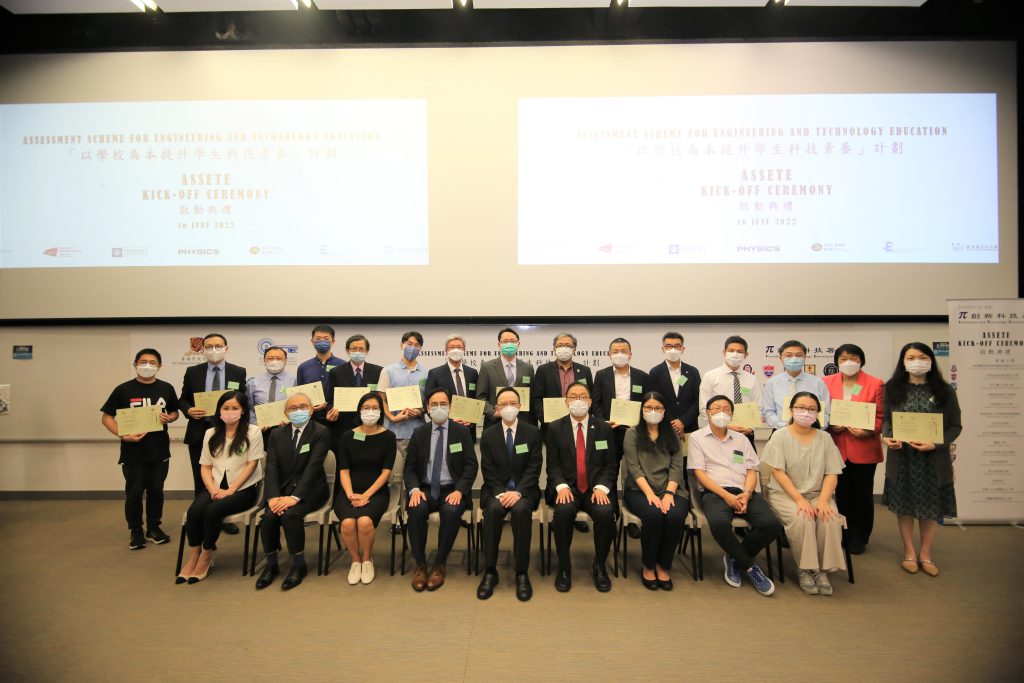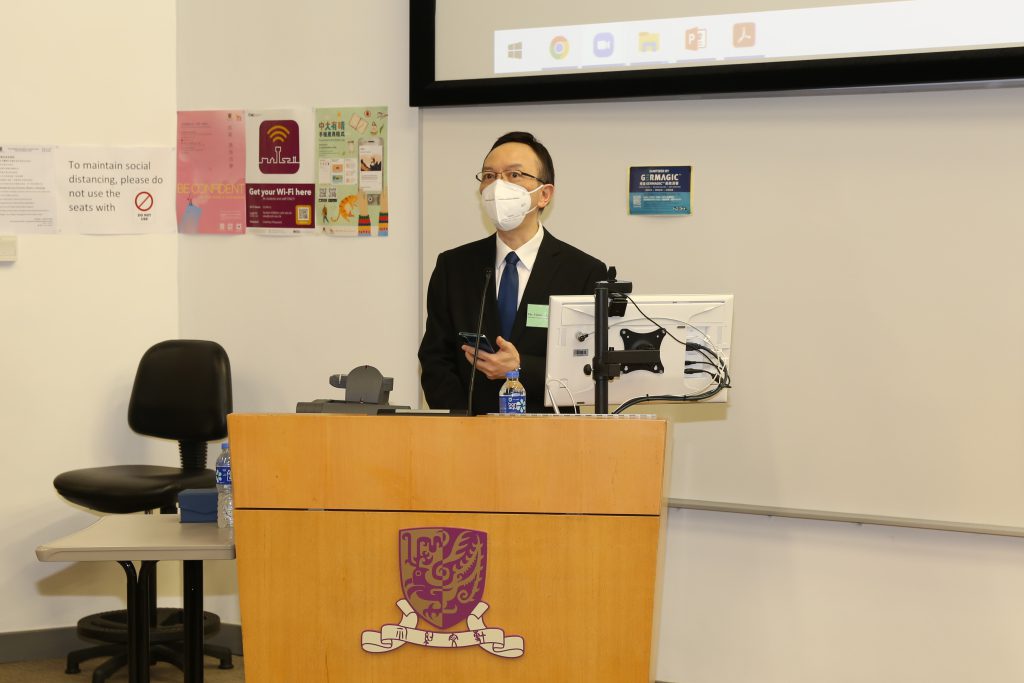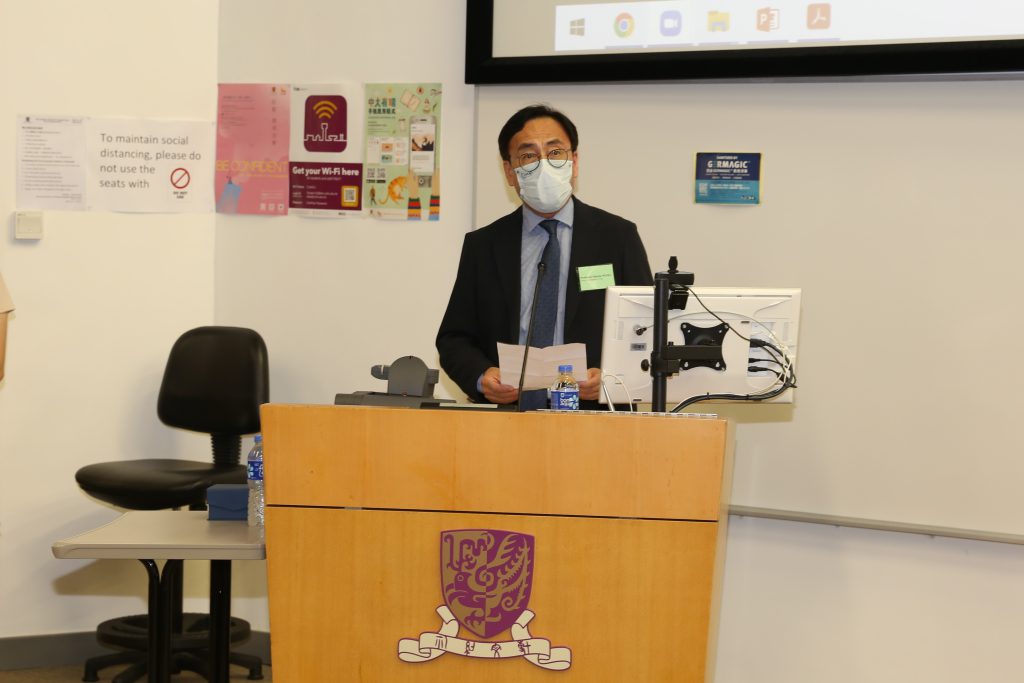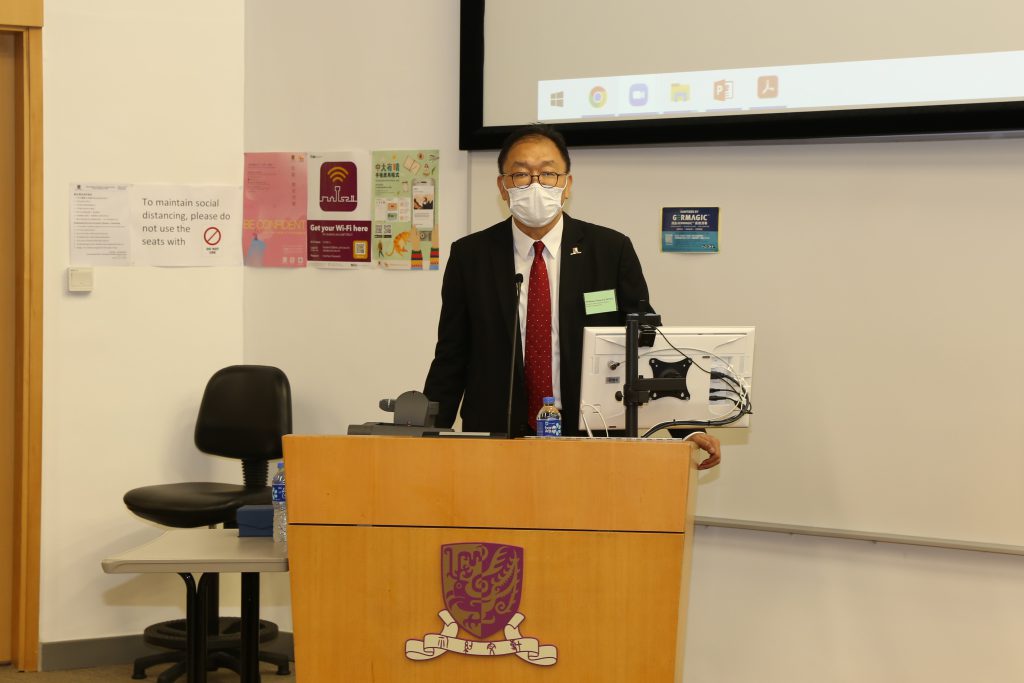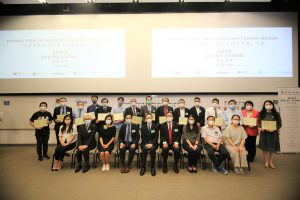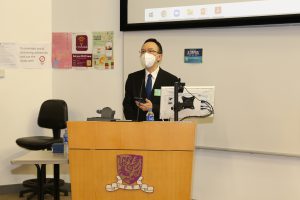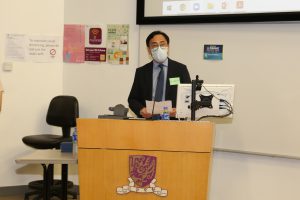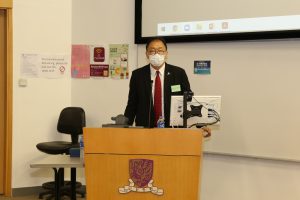CUHK
News Centre
CUHK Faculty of Engineering collaborates with Coventry University to introduce international STEM education standards into Hong Kong
The shortage of innovation and technology (I&T) talents has hindered I&T development in Hong Kong for many years. The Centre for Innovation and Technology (CINTEC) within The Chinese University of Hong Kong’s (CUHK) Faculty of Engineering, in collaboration with Coventry University and the Institute of Coding (IoC) in the UK, has been recently supported by the Innovation and Technology Commission, HKSAR, to conduct the Assessment Scheme for Engineering and Technology Education (ASSETE) project, which aims to introduce international STEM education standards to Hong Kong, so as to effectively cultivate local I&T talents.
The project’s kick-off ceremony was held today at CUHK. Officiating were Mr. Victor Lam, JP, Government Chief Information Officer (GCIO), while guests included Professor Martin D.F. Wong, Dean of Engineering at CUHK, Professor Kam-Fai Wong, the Principal Investigator of the project and CUHK’s Associate Dean of Engineering (External Affairs), and representatives from the British Consulate-General Hong Kong. The Hon. Duncan Chiu, JP, Legislative Council member (Technology and Innovation Functional Constituency) and representatives from the IoC also joined the ceremony and greeted the participants online.
The CUHK research team will design and develop an assessment scheme for evaluating the engineering and technology knowledge and skill levels of local school students. The scheme will be based on the IoC assessment model, which is widely used in UK schools. Professor Martin D.F. Wong said, “I am very glad to know that Professor Kam-Fai Wong is supported by and will collaborate with many experienced local and overseas education experts for this project. I am confident that ASSETE will be helpful for cultivating local I&T talents. This will lay down a solid foundation to strengthen Hong Kong’s international competitiveness.”
The scale of STEM assessment for schools provided by ASSETE is the first of its kind in Hong Kong. The data collected will not only be useful for teachers in assessing the STEM education levels of local secondary and primary school students, but can also be helpful for school management to justify STEM resource allocation, providing the learning activities that will best enhance students’ skills. “The Government has long promoted STEM education in various ways,” said Mr. Victor Lam, GCIO. “Apart from the regular curriculum, the Office of the Government Chief Information Officer has launched various projects to support local schools in organising I&T-related extra-curricular activities. This CUHK project aligns with the government’s planned direction of development for STEM education. It will also create an important reference regarding the I&T levels of local students, which in turn can assist the government in allocating resources more effectively and continuing its role in promoting STEM education.”
The missions of the ASSETE project include (1) to establish the Centre for Realisation of Engineering and Technology Education (CRETE) that will oversee the operation of ASSETE; (2) to set up the Sliver Minds Assessment and Realisation of Technology and Engineering Education (SMARTEE) programme, gathering retired senior STEM teachers to train the trainers; and (3) to provide a series of theme-based extra-curricular engineering and technology activities that enhance students’ skills.
Currently, 25 local secondary and primary schools have registered to participate in the project. The research team will provide modules of different levels for students to choose based on their interests. Students will be given short tests to evaluate their learning progress. Senior educators from SMARTEE will serve as trainers, delivering talks in schools to highlight the key features of different modules and to deepen students’ understanding of various technologies. In addition, through theme-based practical activities, trainers will encourage students to work in groups and apply what they have learned to problem solving. To assess them, trainers will use interviews to evaluate students’ understanding of the technologies and their ideas on their design and application. Students’ basic I&T knowledge will then be assessed in accordance with IoC guidelines. Trainers will observe students’ performance throughout the whole project and will suggest and design appropriate I&T activities for schools, helping them to achieve the aim of “learning with pleasure and teaching without pressure”. Moreover, students who perform well will be given opportunities to visit technology corporations in the Greater Bay Area.


